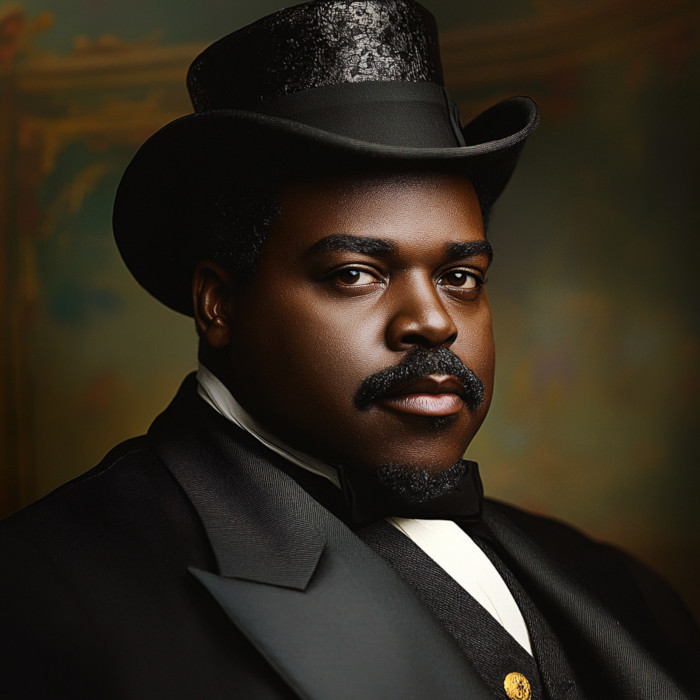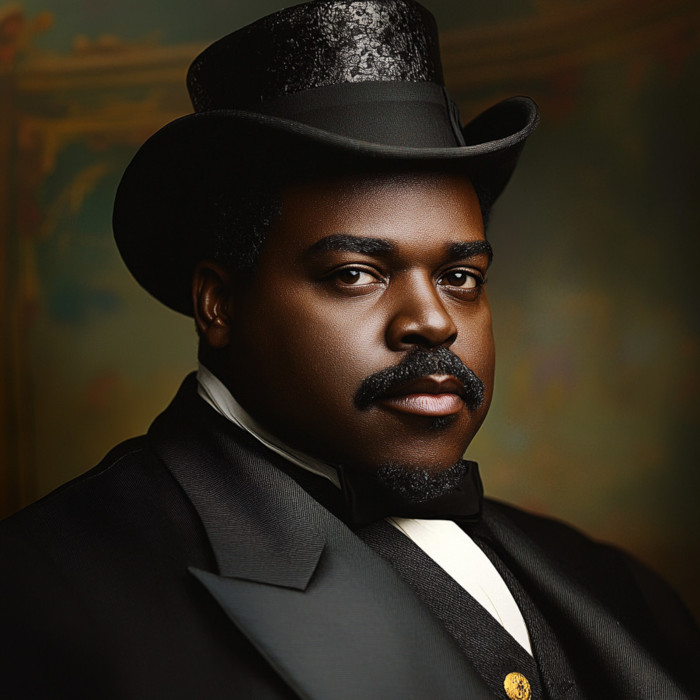


Marcus Garvey (1887–1940) was a Jamaican-born political leader, publisher, orator, and entrepreneur who became one of the most influential figures in the early 20th century Pan-Africanism movement. He is best known for founding the Universal Negro Improvement Association and African Communities League (UNIA-ACL), through which he promoted black nationalism, economic self-sufficiency, and the return of the African diaspora to their ancestral homelands. Garvey’s legacy as a champion of black pride and empowerment continues to resonate globally, particularly in movements advocating for racial equality and African unity.
Birth and Background: Marcus Mosiah Garvey was born on August 17, 1887, in St. Ann’s Bay, Jamaica. He was the youngest of 11 children in a family with modest means. His father, Marcus Mosiah Garvey Sr., was a stonemason, and his mother, Sarah Jane Richards, was a domestic worker. Despite their economic challenges, Garvey’s parents emphasized the importance of education, and his father’s extensive personal library exposed young Marcus to a wide range of literature and ideas, which influenced his intellectual development.
Education: Garvey attended local schools in Jamaica, where he was an excellent student. However, financial difficulties forced him to leave school at age 14. He then worked as a printer’s apprentice, where he became involved in labor organizing and began to develop his political ideas.
Work and Travel: In 1910, Garvey left Jamaica and traveled throughout Central America, working as a laborer and a journalist. He witnessed firsthand the harsh conditions faced by black workers and the widespread racism and exploitation they endured. These experiences deepened his commitment to fighting for the rights of black people. In 1912, Garvey moved to London, where he attended Birkbeck College and continued his education. While in London, he was influenced by the writings of African nationalist leaders and thinkers such as Booker T. Washington, W.E.B. Du Bois, and Edward Wilmot Blyden, all of whom advocated for black self-reliance and unity.
Founding the UNIA: In 1914, Garvey returned to Jamaica and founded the Universal Negro Improvement Association and African Communities League (UNIA-ACL). The organization’s mission was to unite all people of African descent, promote black economic independence, and encourage the return of the African diaspora to Africa to build a strong, independent nation. The UNIA quickly gained support in Jamaica and began to establish branches in other countries.
Move to the United States: In 1916, Garvey moved to the United States, where he expanded the UNIA’s activities. He based himself in Harlem, New York, which was then a center of African American culture and political activism. The UNIA rapidly grew into a mass movement, attracting millions of followers in the United States, the Caribbean, Latin America, and Africa.
Garveyism and Black Nationalism: Garvey’s philosophy, often referred to as Garveyism, was rooted in black nationalism, Pan-Africanism, and economic self-sufficiency. He called for the creation of a separate black nation in Africa, where people of African descent could live free from the oppression and racism of white-dominated societies. Garvey emphasized the importance of racial pride, urging black people to celebrate their heritage and reject the idea of racial inferiority.
Economic Initiatives: One of Garvey’s most ambitious projects was the establishment of the Black Star Line, a shipping company that aimed to facilitate trade between Africa and the African diaspora. The Black Star Line was intended to be a cornerstone of Garvey’s vision of economic self-reliance and a means to transport people back to Africa. However, the company faced numerous financial and operational challenges and eventually collapsed.
Negro World and Cultural Impact: Garvey also launched the newspaper Negro World, which became the official organ of the UNIA. The newspaper played a crucial role in spreading Garvey’s ideas and promoting black culture, history, and achievements. Negro World was widely read in the African diaspora and became an important platform for Pan-African discourse.
Legal Challenges: Garvey’s rapid rise to prominence and his outspoken advocacy for black nationalism attracted the attention of the U.S. government, which viewed his activities with suspicion. In 1923, Garvey was convicted of mail fraud in connection with the sale of Black Star Line stock, a charge many believe was politically motivated. He was sentenced to five years in prison and began serving his sentence in 1925.
Deportation and Later Life: After serving two years in prison, Garvey’s sentence was commuted by President Calvin Coolidge, and he was deported to Jamaica in 1927. His deportation marked the decline of the UNIA in the United States, although the organization continued to operate in other parts of the world. Garvey returned to Jamaica, where he remained active in politics, but he never regained the influence he once held in the United States. In 1935, he moved to London, where he continued to promote Pan-Africanism until his death.
Death: Marcus Garvey died on June 10, 1940, in London after suffering a stroke. He was 52 years old. Initially buried in London, his remains were later repatriated to Jamaica in 1964, where he was reinterred in the National Heroes Park in Kingston. Garvey is honored as Jamaica’s first national hero.
Pan-Africanism and Independence Movements: Marcus Garvey’s ideas and activism had a profound impact on the development of Pan-Africanism and the struggle for independence in Africa. Leaders such as Kwame Nkrumah of Ghana, Jomo Kenyatta of Kenya, and Haile Selassie of Ethiopia were influenced by Garvey’s vision of African unity and self-determination. His emphasis on racial pride and self-reliance also resonated with the Civil Rights Movement in the United States and the global fight against colonialism and imperialism.
Influence on Rastafarianism: Garvey is often credited with inspiring the Rastafarian movement, which emerged in Jamaica in the 1930s. Rastafarians regard Garvey as a prophet who foretold the coming of a black king, interpreted as the coronation of Haile Selassie I of Ethiopia in 1930. The movement embraces many of Garvey’s ideas, including the return to Africa and the rejection of Western materialism and values.
Cultural Impact and Recognition: Garvey’s legacy as a champion of black empowerment and African unity continues to be celebrated worldwide. His life and work have been the subject of numerous books, documentaries, and academic studies. In 1980, he was posthumously awarded Jamaica’s Order of the National Hero, the highest honor in the country. Garvey’s birthday, August 17, is celebrated in many parts of the African diaspora as a day to honor his contributions to the fight for racial justice and equality.
Controversies and Criticism: While Garvey is widely revered, his legacy is not without controversy. His association with white supremacist groups like the Ku Klux Klan, whom he met in an effort to gain support for his repatriation plans, has been criticized. Additionally, some have questioned the practicality of his "Back to Africa" movement and the financial mismanagement that plagued his economic initiatives. Despite these criticisms, Garvey’s influence on black nationalist thought and Pan-Africanism remains significant.
Marcus Garvey was a visionary leader whose ideas and activism laid the groundwork for modern black nationalism and Pan-Africanism. His emphasis on racial pride, economic self-sufficiency, and the unity of people of African descent has inspired generations of activists and leaders. Despite facing legal challenges and political opposition, Garvey’s legacy endures as a symbol of the ongoing struggle for racial equality, self-determination, and justice. His life’s work continues to resonate with those who seek to empower marginalized communities and promote the dignity and rights of people of African descent around the world.

We use cookies
We use cookies and other tracking technologies to improve your browsing experience on our website, to show you personalized content and targeted ads, to analyze our website traffic, and to understand where our visitors are coming from. Privacy Policy.